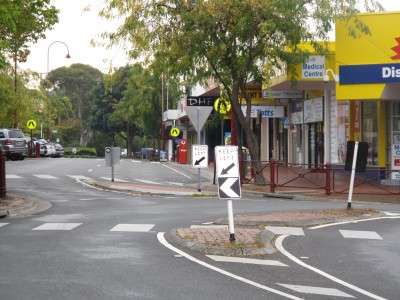Parking restrictions, single lanes, local council controlled parking areas, higher parking fees, train crossings and traffic lights were seen as barriers to shopping at local centres.
Small suburban shopping centres are disproportionately threatened by policies on climate change and traffic congestion that discourage consumers from using their cars, research shows.
The Monash University study found many people already favour larger shopping malls over local centres because of the perceived ease of parking and access.
Dr Vaughan Reimers from the Department of Marketing examined the importance shoppers gave to car convenience, recognising that urban sprawl and decentralised retail options had contributed to reliance on the car. He found that irrespective of age, gender or income, shoppers regarded access and parking as important determinants of where they chose to shop.
He also assessed perceptions of shopping malls and shopping strips, and then compared the actual level of convenience provided by both for people travelling by car. The results were published in Transportation Research Part A.
Dr Reimers' study showed that although shopping malls had more parking than local centres, people were more likely to be able to park close to desired stores at their local centre. However, it was commonly believed that large shopping complexes always had better parking options – a belief that has helped contribute to the rise of the mall.
Parking restrictions, single lanes, local council controlled parking areas, higher parking fees, train crossings and traffic lights were seen as barriers to shopping at the smaller centres by respondents.
"On the basis of the results of this study, any strategies designed to deter car-usage are likely to tip the balance even further in favour of the mall," Dr Reimers said.
"Many policies related to tackling climate change have not only failed to achieve their objective but have also had a negative effect on the retail sector."
Dr Reimers said modern transport systems needed to find a balance between environmental sustainability and economic growth, a fact that was particularly significant in light of the competitive disadvantage faced by suburban shopping centres.
"Policy makers and urban planners must give careful consideration to the negative consequences that may stem from strategies designed to deter car-based shopping," Dr Reimers said.
Provided by Monash University





















